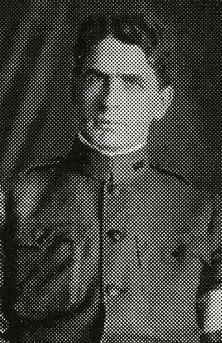
Ralph Burdick Polk (1875-1952)
Inducted 1962
Highlights
Haines City
Grapefruit Sectioning Plant
Lye Peeling Method
Commercial Mechanical Juice Extractor
National Canners Association
Florida Canners Association
Bio
Ralph Polk was born in Greenwood, Indiana, in 1875 to J.T. Polk and Laura Burdick Polk, who also had a daughter, Pearl. His Father J.T. Polk owned a prominent dairy and canning business. Polk worked for his father from a young age, eventually working with his sister’s husband, Sam Dungan. He was a pioneer in the field of mechanical development for processing. He introduced the first of his many innovations in 1905, with the introduction of an agitating cooker for sweet corn. In 1920, Polk moved to Haines City, Florida, and established a thriving grapefruit industry.
His career in Florida began as a bottler of grapefruit juice through 1920 and 1921. In 1922 he established a grapefruit sectioning plant, working with his son, Ralph Polk Jr. He was the first to introduce edible canned grapefruit (then known as grapefruit hearts), handling sections under the lye peeling method. His company was Florida’s leading citrus processor throughout the 1920s and1930s. In 1925 he also founded the and constructed the Polk Hotel. Despite the hard economic times, Polk continued to run a successful business, employing many in Haines City. In the 1930s J.T. Polk’s old dairy plant was forced to close down and the man who was running it, James Crowles, came down to work for Polk and his son. In 1935, he was co-inventor of the first commercial mechanical juice extractor with Ralph Polk, Jr.
In the late 1930s, Polk relocated his factory to Tampa, taking many of his employees with him. In 1940, he and his son patented a method for removing the citrus cells from the inedible portions of the fruit. While in Tampa, Polk was introduced to the daughter of one of his employees, Mary Hatcher. Polk was impressed by her singing voice and arranged lessons and many local appearances for her. He eventually arranged for her to attend the Julliard School of music. Hatcher would go on to be a successful singer and screen actress through the 1940s and 1950s.
Polk continued to improve upon his canning and peeling processes throughout his career. He spent many years in development work on mechanical peelers and sectionizers for grapefruit. His many improvements to his process made him a pioneer in the canning field. He was a charter member and early director of the National Canners Association, as well as one of the founders of the Florida Canners Association. Polk died in 1952, leaving a successful business behind for his son and a legacy of innovation. He was inducted into the Florida Citrus Hall of Fame in 1962, for his many contributions to citrus and citrus processing. His Polk Hotel also remains today as a testament to his past success. Although, at one time it had fallen into disrepair, today it stands as the site of the Landmark Baptist College and it is listed on the National Register of Historic Places.
